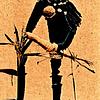Take a photo of a barcode or cover
What a beautiful book, one whose ideas I will think on for a long while and one whose pages I am sure will revisit again.
challenging
hopeful
informative
inspiring
reflective
Subject matter was not what I expected, writing style dull.
challenging
informative
inspiring
slow-paced
Some of it was very interesting, but I found parts hard to understand. The later chapters on particular artists were incredibly dense and difficult to understand. I wasn't sure what it had to do with the overall subject of the book.
Overall, probably worth reading for artists, but I think you'd get the most out of it by skipping around and only reading the parts that interest you most.
Overall, probably worth reading for artists, but I think you'd get the most out of it by skipping around and only reading the parts that interest you most.
This book is more than a book and more than a gift. It is a testimony to a way of living that asks the reader to be more engaged with humanity and the things (physical or emotional) we share. Like an anthropologist, Hyde follows the tradition of gift giving through ancient folktales and cultural practices and applies the lessons learned to what it means to be a modern human with something to give to society, whether that gift is talent, wealth, or insight. The existence of this book is a gift in itself, and reading it may unwrap a gift within you that you've been waiting to recognize and pass along.
Apparently this book is amazing but I got bored while reading it. SORRY.
slow-paced
Did not finish, not my favorite read about creativity
Terrific ideas. Actually 3 books: one as titled, one critique & analysis of Walt Whitman and another of Ezra Pound.
so boring bro. fuck this book i get thru ten pages and sleep. it’s good but too historical and educational for me. i tried i really did.




